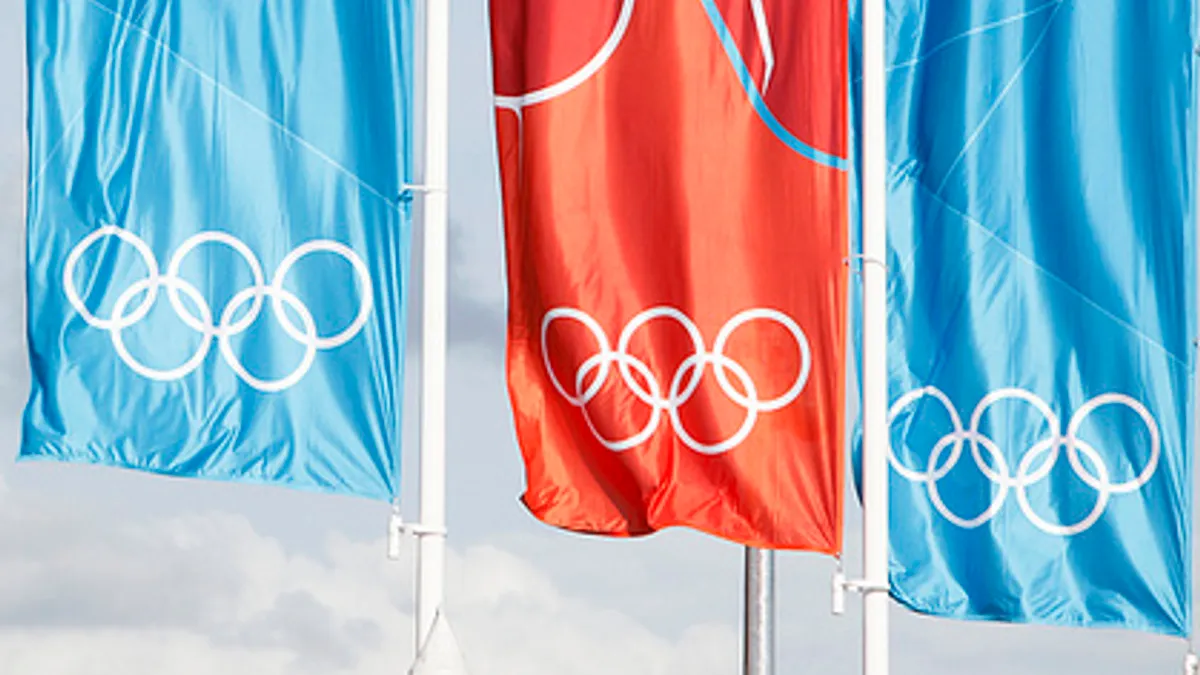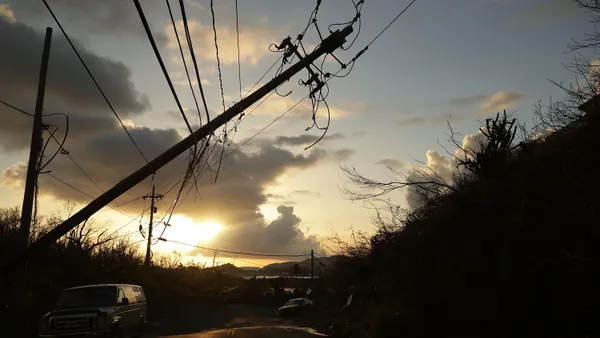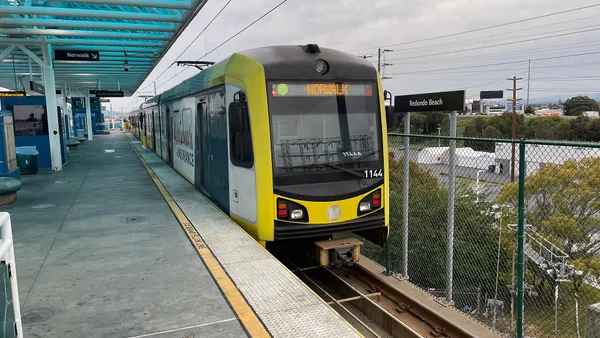Dive Brief:
- Los Angeles mayor Eric Garcetti soon will announce the final projects for the "28 by 28" initiative, which aims to complete 28 regional transit projects prior to the city hosting the 2028 Summer Olympics, reported The Architect's Newspaper.
- The proposal includes 16 projects already planned through Measure M, a recently passed transportation funding ballot initiative that will generate $860 million annually, as well as a previous transit measure.
- Projects will include light rail and bus rapid transit improvement and expansion, as well as highway improvement and widening.
Dive Insight:
Exciting though the Olympic Games are, they can present significant challenges for the host cities. International attention, the influx of thousands of elite athletes and hundreds of thousands of fans can tax even the most streamlined city. Los Angeles already knows this, though, having hosted the 1984 Summer Olympics.
The city has just under 11 years to prepare for the event, which includes ensuring a solid transit system. The first phase of the $2.64 billion Purple Line subway extension is nearly complete, with work to start shortly thereafter on the $2.38 billion second phase. Although originally slated for completion in 2035, the pending Olympic games have fast-tracked the extension. The "People Mover" rail line to Los Angeles International Airport also should be complete by the Games.
Los Angeles also is making news with its relatively modest bid. As opposed to other Games — none of which have stayed under budget since 1960 — Los Angeles estimates it will spend $5.3 billion on the 2028 Games, according to Slate. Organizers have proposed temporary venues, four permanent venues that all have a documented future use and housing athletes in existing and pre-planned dormitories at local universities as opposed to building a brand new Olympic Village.
Before the spotlight turns to Los Angeles in 2028, though, Tokyo and Paris will play host, and both cities are working hard on preparations. Poor infrastructure was one of the issues that plagued the 2016 Rio de Janeiro Games, as well as Zika virus concerns, construction delays and poor water quality. Future host cities are hoping to avoid similar situations.
The 2020 Tokyo Olympic stadium, with an estimated price tag of $1.5 billion, has been under construction for nearly a year already, follwowing a five-month delay caused by economic and aesthetic concerns. Paris, on deck to host the 2024 Summer Games, claims it has 95% of the needed infrastructure already built. Beyond that, however, is its already strong transit system, made stronger by the Grand Paris Express, a massive metro system expansion. Although not scheduled to be complete until 2030, the progress by 2024 will positively impact Olympic-goers.











